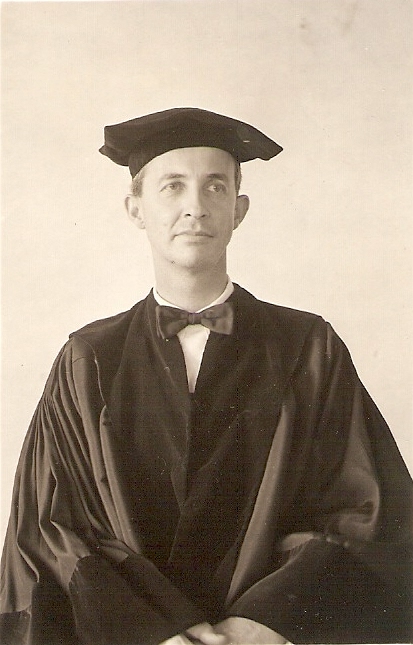
A Review of Research on the Biological Transmutation of Chemical Elements
Based on an unfinished paper by Prof. L.W.J. Holleman
Appendix I: An Obituary and a C.V. of Professor L.W.J. Holleman

Leendert Willem Jacob Holleman
23rd September 1906 - 13th November 1994.
Our noble friend Wim Holleman has closed his earthly life and began, on the 13th November, the course that shall lead him through pure spiritual regions.
We would like to give a short sketch of a few phases of the course of his life, which is now closed. We have chosen three images which relate to his youth, middle age and to the phase in which he was older and more mature.
When he was two years old his father died. Between his second and twelfth years he lived with his mother, brother and two sisters in Baarn. His mother was a gifted pianist who often accompanied singers; the house was pervaded with a beautiful wealth of sound which the little Wim absorbed with great intensity. His being obtained the nourishment which he eagerly longed for. Even at an early age he obtained piano lessons from his mother and he developed fast and easily. We should always imagine the little Wim as a specially beautiful, finely built child. He was steeped in song and music. Poetically expressed, it was as if he had fallen from out of the music of the spheres.
After struggling through secondary school in the Hague, which did not suit him, and having deepened his love of music under the inspiring musicologist Van de Waal, he went at the age of seventeen to study chemistry in Leiden.
Just before, on the basis of their fruitful conversations, his cousin Riet had handed him a copy of The Philosophy of Freedom [Steiner], which he studied with great intensity. His choice for the study of chemistry can be associated with the fact that the fascinating play of the visible chemical processes is connected with the same world of numbers which manifests itself in music. He was, certainly later, strongly under the influence of this relationship. And this leads to the second image.
After his PhD, he worked for many years as assistant in Leiden, before going to Indonesia in 1936, where he obtained a leading position in the Buitenzorg College of the National University. There he married Ibolya Mancza in 1938, whom he knew from his time in Leiden. In 1951 he was appointed professor. His inaugural address gives a clear image of the state of Wim Holleman's soul and spirit at that time. In it he sketches the development of chemistry since the Middle Ages. The ancient alchemy connected a very limited number of chemical processes to a large wealth of inner experiences. The "making of gold" still meant at that time the purification of the soul life, so that it attained a quality of gold. The purification was felt as a musical experience, connected with the endurance of pain. The further [historical] development of alchemy is followed, step by step, in the speech; it eventually leads to its [materialistic] opposite. Present-day chemistry (1951) connects an overwhelmingly large number of processes with a poverty of inner experience. The concepts remain almost totally limited to mechanistic phenomena in a world of unimaginably small particles. Wim Holleman ended his speech with the wish that we may have a prospect of a future rebirth of the inner wealth that could liberate chemistry from out of her [present-day] prison. He uses a quotation from the independent chemist Liesegang: "I enter into no prison".
On his return to the Netherlands, Wim settled in Baarn after a while and joined the staff of the Pathology Department of the University of Utrecht. He was allowed, alongside his "routine work", to devote a modest part of his time to some research of his own. His strong, inner, musically disposed susceptibility and sympathy protested against the accepted fact that the underlying principles, even for living processes, must be sought for in bone-hard immutability. That the chemical elements in organisms - for example potassium or calcium - cannot change themselves into other elements, appeared to him to be an "unmusical" rigidity. He found support for his ideas from Rudolf Steiner, who describes the reality of such a transposition. Towards this reality Wim directed his research. He held as an inner truth that the chemical life processes are in such a way under the continual influence of that which the ancients called "the harmony of the spheres", that all that becomes fixed must be able to be broken down. It was as if he, in his own being, experienced this music so strongly that he experienced its workings in such a way that it affected his whole body. He succeeded in showing that potassium in algae must indeed be subject to transmutation into other elements.
In these three images, taken from three life phases, the figure of Wim Holleman speaks the same language: of a being, filled with nobility and amiability, penetrated by heavenly music, a noble Christian.
Sophia Holleman and Dick van Romunde
Mededelingen, June 1995.